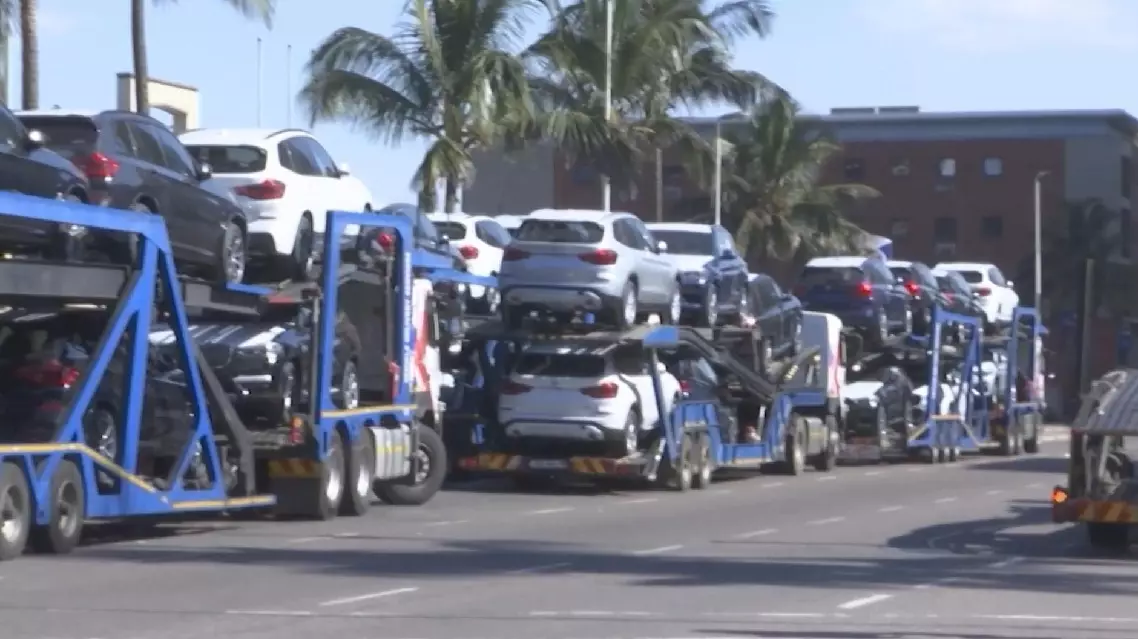China’s box office revenue for the three-day Qingming Festival holiday that started on Friday, including pre-sales, had exceeded 370 million yuan (50.8 million U.S. dollars) as of 20:01 on Sunday, according to box office tracker Dengta Data, with the video game adaptation “A Minecraft Movie” taking the top spot.
The U.S. animated film, based on the best-selling game, has been a major draw, accounting for over 25 percent of screenings in Shanghai. Its popularity is fueled by a dedicated fanbase, with young moviegoers expressing their affection to the game.
“I’ve been playing the game since I was a little girl,” said a young moviegoer, while another added, “I started to play it when I was in Grade Two [of primary school], so I’ve been playing it for about eight years.”
While the game adaption benefits from a strong fanbase, other niche releases, such as the Japanese anime “Mobile Suit Gundam GQuuuuuuX,” also attracted their target audiences, securing the sixth spot in the box office rankings. Two realism-focused films, “We Girls” and “Mumu,” captured the second and fourth places, respectively.
The re-release of the blockbuster animated film “Ne Zha 2” performed strongly, landing in the third place with over 71 million yuan (9.75 million U.S. dollars) in sales.
Despite the success of “Ne Zha 2” during the Spring Festival holiday season running from late January to early February, the market has yet to see another major blockbuster emerge.
Smaller, independent films often struggle to reach audiences due to limited marketing, especially during competitive holiday periods.
Lu Ying, a cinema manager, suggests that extending the theatrical runs of these films during off-peak times can tap into targeted audiences and create benefits in the long run.
“A film maintaining a momentum of popularity for two weekends, followed by other good releases, is a right rhythm for cinemas as we expect,” Lu noted.
China’s box office exceeds 370 million yuan during Qingming Festival holiday
China’s box office exceeds 370 million yuan during Qingming Festival holiday
A 25 percent import tariff on all foreign-built vehicles entering the United States has raised serious concerns for manufacturers in South Africa.
Automotive giants like Mercedes and BMW have long used South Africa as a base for global exports — but those plans may be shifting into reverse gear after the U.S. announced the punitive measures.
“If you take, for example, BMW, 97 percent of the X3 that we are producing in Rosslyn is exported out of the country. We only sell 3 percent in South Africa, and there’s a huge number of those vehicles that also go into the U.S. So there are companies in South Africa that are purely here not because they are selling vehicles in South Africa; they are here to produce vehicles for the global market, and it’s important for them to remain globally competitive,” said Mike Mabasa, CEO of the National Association of Automobile Manufacturers of South Africa.
U.S. automaker Ford, which has deep roots in South Africa, is also in the crosshairs.
The company recently invested over 300 million U.S. dollars to upgrade its Silverton plant in Pretoria, South Africa, for the production of the world’s only plug-in hybrid Ranger, which has just entered production but could face delays or restrictions.
“If an American citizen wants to buy specifically a Ford Ranger that is a plug-in hybrid, they can only place an order in South Africa, nowhere else in the world. So, that means, obviously, the capacity of Ford to be able to produce those vehicles in big volumes is going to be constrained, because Americans are going be looking at another Ford that is produced in another country, or even in the United States,” said Mabasa.
South Africa has long enjoyed duty-free automotive exports to the U.S. under the African Growth and Opportunity Act, but that relationship now hangs in the balance.
A sharp shift in U.S. foreign policy threatens to derail an industry that employs thousands and contributes around 5 percent to the country’s economy.
“We produce less than 1 percent of global automotive vehicles, so to say. So, in reality, the impact on us is likely to be more disproportionate than those of our peers that produce at the same level. And the risk is actually created — a concentration risk — in countries that have greater capacity and are building more; in those countries will be able to absorb some of this,” said Parks Tau, South Africa’s minister of trade and industry.
Amid growing concerns about overreliance on the U.S. market, Amith Singh, national manager for manufacturing at Nedbank Commercial Bank, emphasized the importance of tapping into regional trade opportunities.
“I think we need to make better use of some of our local agreements, our African continental agreements. How do we leverage that? How do we partner with the government and private sector to start benefiting the countries and the economies aside from the United States? So, those could be the catalyst to drive our localization projects; it could be what we need to drive the African economy as opposed to being completely reliant on the States (United States),” he said.
South Africa is for now standing firm in its decision not to retaliate against steep U.S. import tariffs, set to take effect in just a few days.
Officials in Pretoria acknowledge the challenges posed by the current U.S. administration but are pursuing a diplomatic approach in hopes of maintaining stable relations and preserving the African Growth and Opportunity Act.
US tariffs rock South Africa’s auto industry




